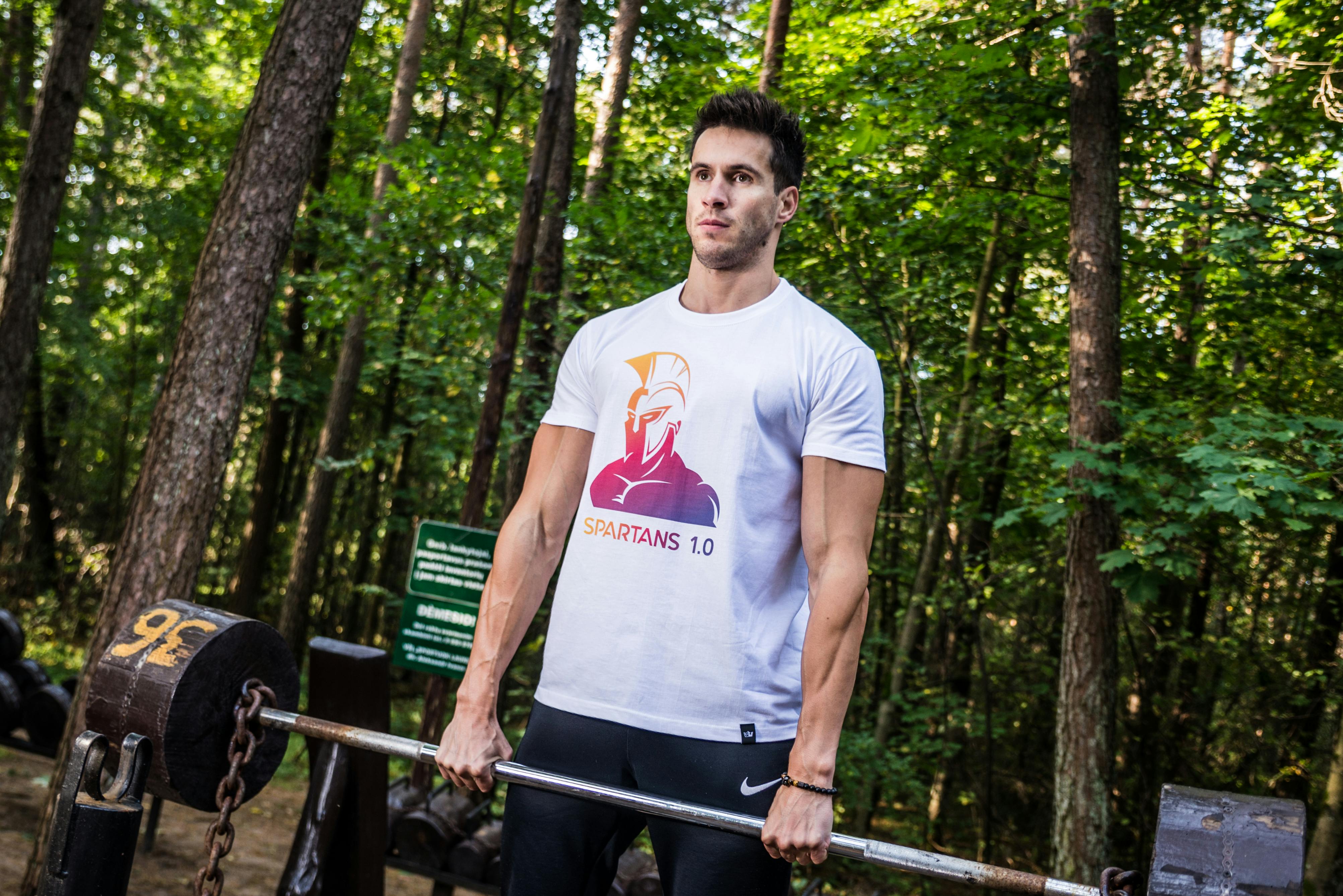A few years ago I was a speaker at a youth camp. When it was time for the first group game, one of the leaders began by telling a parable based on Genesis 1-3. He described the joys of playing in the Garden of Eden, where the emphasis was simply on the joy of playing. But one day the serpent entered the garden and tempted the inhabitants of Eden with the idea of points. They gave in to temptation and began to keep score in their games and this led to all kinds of evils: competition, lust to win, cheating, anger and fights. They lost the simple joy of playing.
The leader told this parable so that the youth would know that this week at camp they would be introduced to non-competitive games. There were no points, no winners or losers, just the joy of playing. But there was a serious problem: the games were totally and completely boring. Day after day fewer and fewer young people showed up at game time, so that at the last game there were only a handful of young people there.
Is this an accurate description of a theology of sports? Obviously I don’t think so. I would like to present a brief and comprehensive theology of sport. If you don’t like that title, you can think of it as “Why should we watch the Super Bowl!”
The story can be summed up in three words: creation, fall, redemption. Therefore, when you analyze the theology of an issue, you must ask yourself: What is its relationship or reflection of creation, of the fall, of redemption? In considering the subject of sports, I have added two more words to broaden our consideration: incarnation and salvation (both of course are tied to creation, fall, and redemption).
Creation: God could have created everything to be gray and useful. Rather, it created a great diversity of colors, sizes, shapes, smells, textures, sounds, and tastes. Why did you do this? He did it so that creation would be a reflection of His person and, in particular, His beauty. It is a masterpiece of function and form. Creation is a work of art.
Art is sometimes thought to consist of two types: visual art, such as painting, sculpture, architecture, and performing art, such as theater, music, dance. The Lord included both visual and scenic art in creation. Visual art: flowers, mountains, trees; Scenic art: oceans and rivers, planetary orbits, clouds. Some things in creation combine the two.
Sports are a reflection of this creative activity of the Lord. They also combine visual art (painted fields / courts, team colors and logos) and performing arts (the actual work). Sports reflect the function and the way of creation. There is beauty in a perfectly executed play, in a well-thrown ball, in a plummet, in a double play. Those things can bring excitement and happiness because they are a reflection of the way the world was created. They are an art show (or art, if you prefer).
The Lord also created things in a specific order, not haphazardly, and placed within the laws or rules of creation by which nature operates. Sports also have an order and rules by which they operate. Just as there are consequences for rebelling against the created order (such as ignoring gravity), there are also consequences for not following the rules in sports. Sports reflect nature and the principles of creation. As in nature, this reflection, well done, honors the Lord and brings joy to the fan.
Fall – In the fall, man rebelled for sin and the curse that resulted from that fall touches every part of everything – there is nothing to escape. This means that we would expect to see evidence of the decline in sports, and of course we do. There are sins of attitude as well as sins of action.
The most deadly of these sins is the idolatry of sports, when it occupies the highest place in the affection of the heart and in the thought of the mind. When life is planned around when the games are played or when a person’s entire perspective is affected by whether their team wins or loses, they have crossed the line into an unhealthy and sinful obsession.
There are other wrong attitudes as well: when winning becomes the only thing that matters, when a person will do whatever it takes to succeed, when personal glory becomes the end of everything, when people become arrogant or angry. All of these are sins of the fall. The drop is reflected in stock-based sports like steroid use, grooming games, bat plugs, bench-clearing fights, and a host of other things.
Incarnation: We are embodied beings and the incarnation validates that our bodies are more than just containers for our souls. Even our eternal state will consist of bodies, glorified bodies, but bodies nonetheless. The Christian life is not about condemning the body, but about submitting it to honor the Lord.
Sports are one of the things that help us achieve this. Playing a sport requires discipline and discipline of the body for sports can carry over into our spiritual lives. Sports require determination, late gratification, hardening of the body. Sports can also teach how to work as a team, how to submit to authority, how to encourage those who do not have the natural talents of others, how to hit hard. And they teach patience. Even time in the bank can be sanctifying.
Sports are a way that we honor the truth and reality of the incarnation and glorify God by using our bodies in ways that honor God.
Salvation – The history of salvation is a drama. A drama, to be effective, depends at least on knowledge, movement and time. In the drama of salvation, the Lord had a plan of action, knowledge, before the beginning of time. In creation, this game plan was put in place, what we know as the people and events of the unfolding story. And everything was done according to God’s timing: Galatians tells us that Christ came in the fullness of time. That drama continues today. It is what CS Lewis called the true myth.
Nowadays, actors / actresses in drama need to know their lines (knowledge), they need to know where they are supposed to be in a scene (movement), and they need to know when to act out their part and say their lines (time). The great drama also has that sense of being a true myth.
This dramatic notion of knowledge, movement, and time is reflected in sports. Knowledge is seen in the plays and strategies that are part of the sport. The movement is seen in the execution of those strategies and they are only successful if the timing of everyone involved is correct. Sports portray the action of drama and they also have that mythical look. It may be that part of the sporting appeal comes from the fact that they are universal because they are part of human life. Some would say that sport transcends entertainment and takes on a significant and important meaning in the lives of people who enjoy and spend time in sport.
The heart of our salvation is the saving work of Christ: he gave himself for us in body and blood.
Sports are one of the only fields in life where you can offer your body for the good of others. Many sports plays – a block, a catch, a physically demanding gym routine – are the giving of the body for the good of the team. This is a sample of the gospel.
Redemption: Redemption is the delight in restoration. When that redemption is fully achieved in consummation, it becomes glorification, that will be full joy and unhindered delight. The joys and pleasures of this life are gifts of grace. They are never completely satisfying, but they give an idea of what that complete satisfaction will be like.
Sports, for fans, is one of those gifts that brings joy and delight (also sometimes disappointment, so we learn to deal with it in a healthy and godly way). They should enjoy themselves for what they are: a gift of grace. The enjoyment never lasts or is total but it is a taste of that complete satisfaction that makes us yearn for more. So, although a sport can be enjoyed in itself, it indicates something more than this momentary enjoyment; it reveals the longing for everlasting joy. The sports fan who recognizes this higher purpose is viewing that enjoyment from a biblical perspective. Temporal enjoyment is a gift, but not an end. When treated as an end, it borders on idolatry. We must train our joy to be experienced as part of God’s purpose.
Like all other things in life, we must take sports captives and make them obedient to Christ. Watching sports and participating in sports can become transformative activities when we view sports as one of the ways that God is extending His grace to us and recognizing that it is a means of longing for the greater joy that only Christ can give.
There is much more that could be said. I have not even mentioned Paul’s use of sports language and his use of sports as a metaphor for spiritual life. I have not talked about how sports can be used as an evangelism tool to spread the gospel. I have not mentioned how sports should combine physical strength and courage with meekness and love. I have not referred to the relationship between sports and our spiritual warfare. But I hope I have given enough to make you think, and maybe to think about sports a little differently than you have before.



